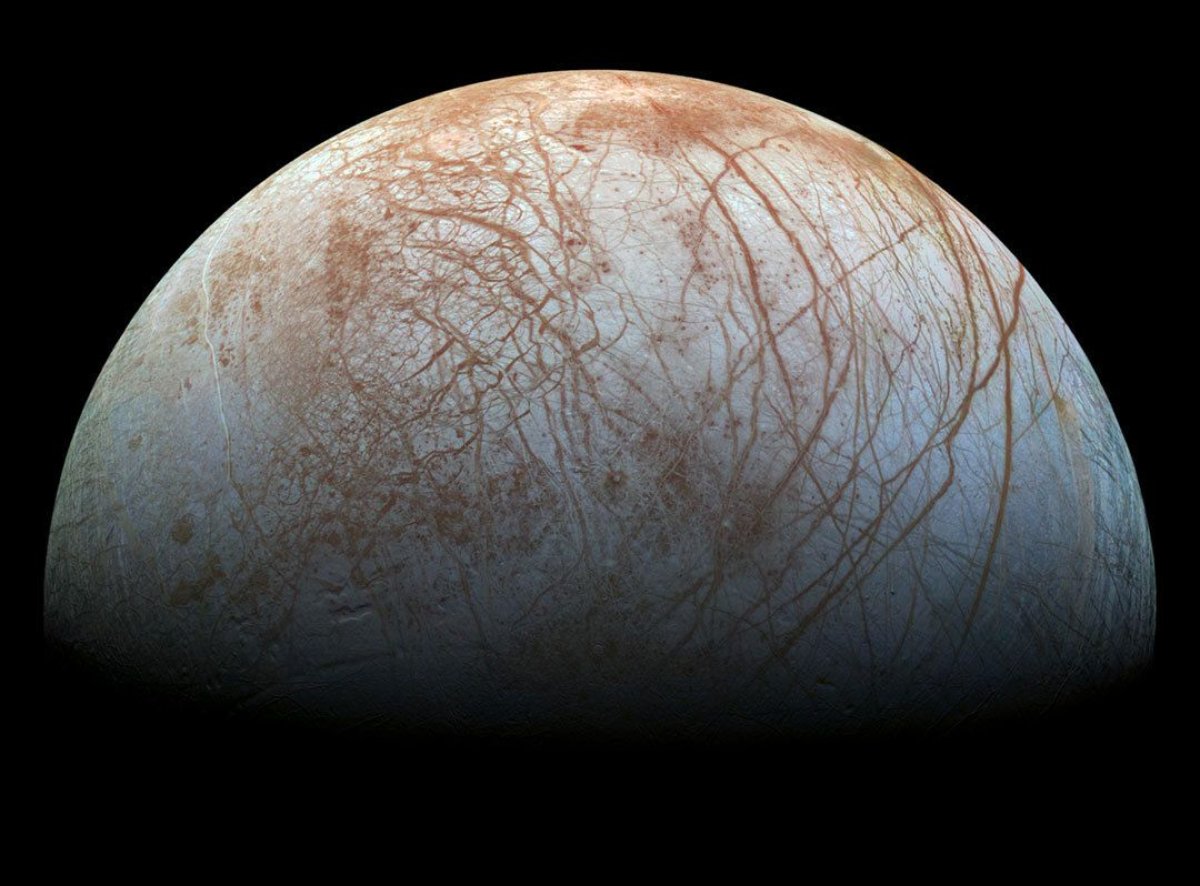If traces of life exist on Jupiter's moon Europa, they might be found less than an inch below its icy surface, according to a study published in the journal Nature Astronomy. The new findings could help to identify landing sites for future missions to the moon.
Europa, which is thought to possess a large ocean of liquid water beneath its crust, is a prime target in the hunt for life outside the Earth. However, the moon's surface is constantly bombarded by intense radiation from Jupiter, which, over time, would likely have led to the destruction of any organisms living there, or indeed any biological traces of ancient life.
Because of this, it has been assumed, up till now, that any landing probe would have to drill several feet into the hard crust to obtain any useful organic samples—something that is beyond our current capabilities. But the new results suggest that we may not have to dig this far after all.
For the research, Tom Nordheim, a planetary chemist and astrobiologist from NASA's Jet Propulsion Laboratory, and his colleagues, modeled the effects of radioactive particles striking Europa's surface.
They then compared these results to data showing how quickly these radioactive particles break down amino acids—the building blocks of life, which the researchers used as a proxy for biosignatures.
The team found that the rates of radiation hitting the surface varied drastically depending on the location. Consequently, this led them to conclude that at mid-to-high latitudes, amino acids could exist at detectable levels between just 1 and 3 centimeters (0.4 to 1.2 inches) below the surface. In equatorial regions, however, this distance increases to several tens of centimeters.
"The key finding is that it would be enough to simply 'scratch beneath the surface' to find material—including potential biosignatures—that has not been destroyed by the intense radiation from Jupiter that is constantly bombarding Europa," Nordheim told Newsweek. "This means that we could send a future mission to Europa's surface to search for biosignatures without having to bring a large and costly drilling system."
Furthermore, the study indicates that the most promising places to look are Europa's mid-to-high latitude regions.
"It is in these less irradiated regions that we might expect the best chance of finding recognizable biosignatures of life," John F. Cooper from NASA's Goddard Space Flight Center, who was not involved in the research, wrote in an accompanying Nature Astronomy "News & Views" article.
NASA's upcoming Europa Clipper mission—which is set for launch in the early 2020s—will make observations of the moon's surface in fine detail, which, armed with the new knowledge, could help to identify potential landing sites for future probes.

Clipper will also be used to confirm evidence reported recently in another Nature Astronomy study which indicated that huge plumes of liquid originating from below Europa's surface were being ejected into space.
Scientists think that these plumes, if they are confirmed to exist, may also be promising spots to search for life with Clipper. The spacecraft could be flown through the plumes to try and detect any biosignatures within them using special on board instruments.
Uncommon Knowledge
Newsweek is committed to challenging conventional wisdom and finding connections in the search for common ground.
Newsweek is committed to challenging conventional wisdom and finding connections in the search for common ground.
About the writer
Aristos is a Newsweek science reporter with the London, U.K., bureau. He reports on science and health topics, including; animal, ... Read more
To read how Newsweek uses AI as a newsroom tool, Click here.








